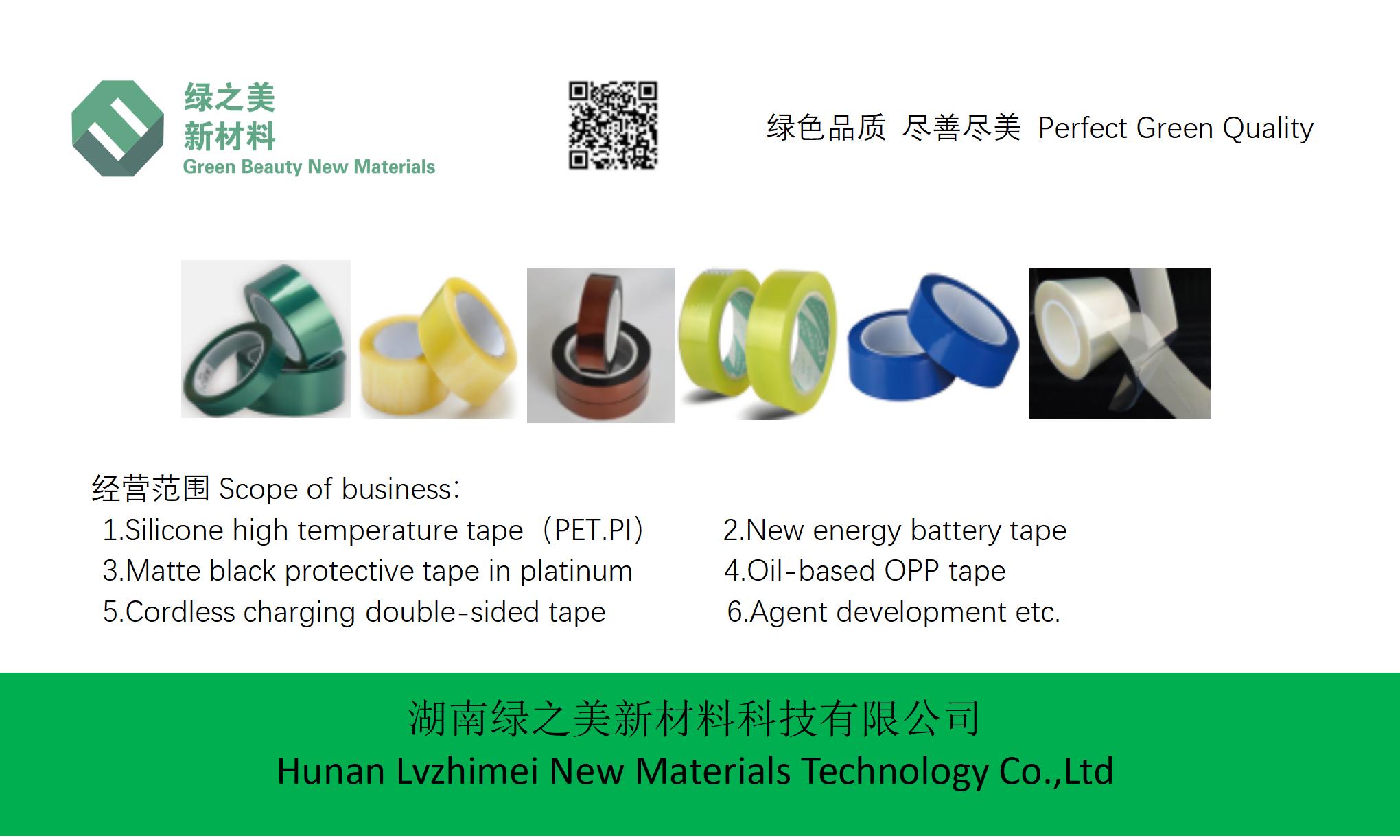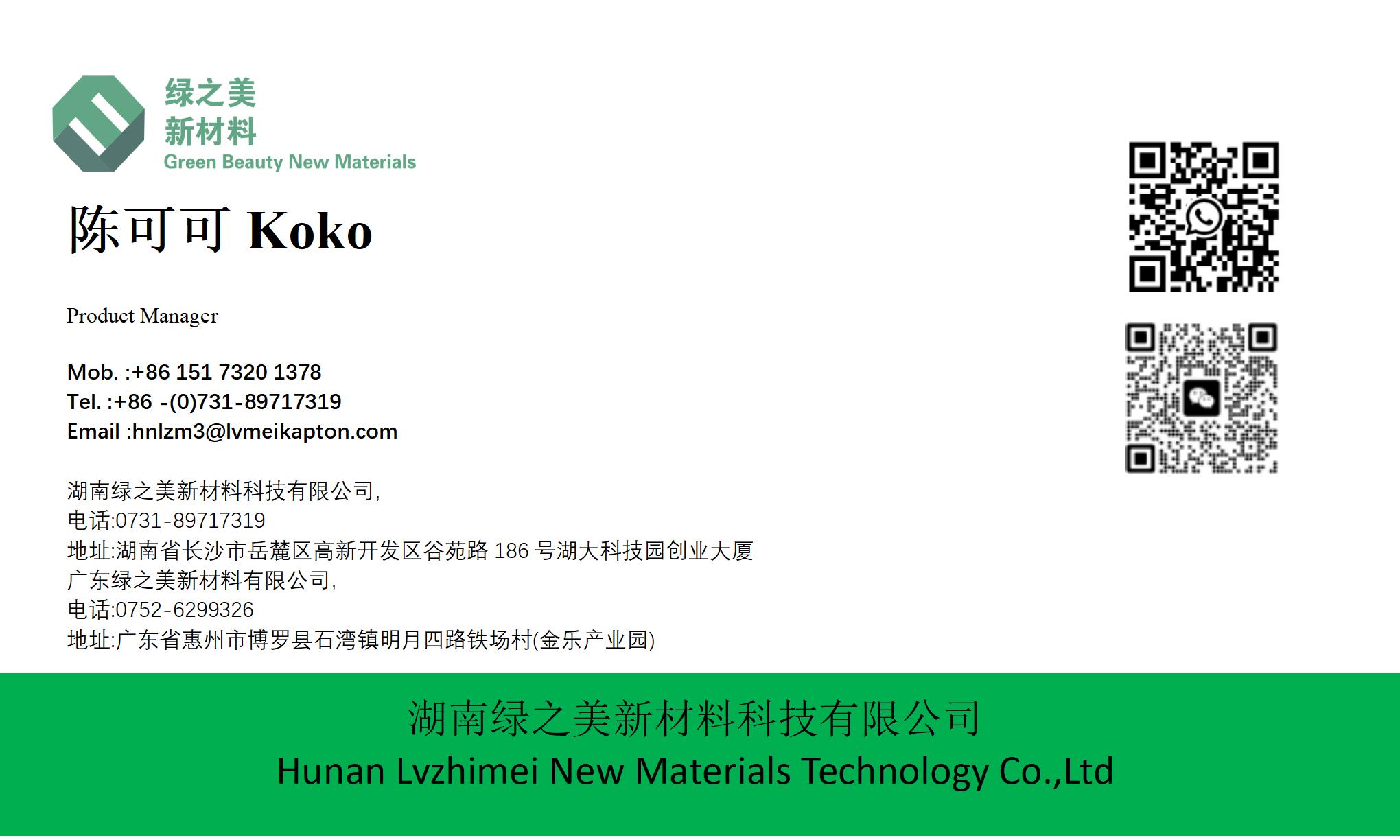hnlzm@lvmeikapton.com
+86 13787123465


Hunan Lvzhimei New Material Technology Co., Ltd.


NameDescriptionContent
Which Applications Require PI Material High Temperature Resistant 300 Tape? |https://www.lvmeikapton.com/
Source:
|
Author:Koko Chan
|
Published time: 2025-05-15
|
388 Views
|
Share:
High-temperature resistance is a critical requirement in many industrial applications where materials are exposed to extreme thermal environments. PI (Polyimide) material, renowned for its exceptional thermal stability, mechanical strength, and electrical insulation properties, has emerged as a preferred choice for applications demanding temperatures up to 300°C. This article delves into key industries and applications where PI high-temperature tape plays an indispensable role, comparing its performance with Adhesive PET material and Brown circuit board tapes to highlight its advantages.
Which Applications Require PI Material High Temperature Resistant 300 Tape?
IntroductionHigh-temperature resistance is a critical requirement in many industrial applications where materials are exposed to extreme thermal environments. PI (Polyimide) material, renowned for its exceptional thermal stability, mechanical strength, and electrical insulation properties, has emerged as a preferred choice for applications demanding temperatures up to 300°C. This article delves into key industries and applications where PI high-temperature tape plays an indispensable role, comparing its performance with Adhesive PET material and Brown circuit board tapes to highlight its advantages.
Key Properties of PI Material High Temperature TapePI tapes are fabricated using polyimide films as the substrate, coated with specialized adhesive systems (e.g., silicone or acrylic-based) to achieve superior thermal resistance, chemical inertness, and electrical insulation. Key characteristics include:
●
Operating Temperature Range: -269°C to 400°C (short-term exposure up to 500°C).
●
Mechanical Strength: High tensile strength (20 kg/25mm) and adhesive force (585g/25mm).
●
Electrical Insulation: Class H insulation (6000 KV voltage resistance).
●
Chemical Resistance: Immunity to acids, solvents, and oils.
●
Versatility: Easily customizable through processes like metalization, laminating, and die-cutting.
Core Industries and Applications1. Aerospace and DefensePI tapes are pivotal in aerospace components subjected to thermal cycling and mechanical stress:
●
Jet Engine Insulation: Protecting turbine blades, combustor liners, and nozzle seals from temperatures exceeding 500°C.
●
Spacecraft Thermal Management: Shielding electronic modules, fuel systems, and exterior panels from vacuum thermal extremes (-200°C to 300°C).
●
Electrical Wiring: Ensuring insulation integrity in avionics systems, where wire bundles must withstand radiation and thermal shocks.Example Products: Kapton® tapes (DuPont), Upilex® (UBE), Apical® (Kaneka) with specialized coatings for space applications.
2. Automotive and TransportationIn the automotive sector, PI tapes address stringent thermal and safety requirements:
●
Electric Vehicle Battery Systems: Insulating battery packs, where temperatures can spike to 150°C during charging or thermal runaway events.
●
Engine Compartment Protection: Shielding wiring harnesses, sensors, and ECU modules from underhood heat (up to 200°C).
●
High-Speed Train Components: Insulating traction motor coils and transformers in environments reaching 250°C.Notable Advantages: Lightweight (density ≈ 1.4 g/cm³), superior flame retardancy, and resistance to automotive fluids.
3. Energy and Power GenerationPI tapes are essential in energy infrastructure:
●
Wind Turbine Generators: Insulating stator windings, where temperatures can reach 180°C during continuous operation.
●
Solar Cell Encapsulation: Serving as backsheet materials for photovoltaic modules, maintaining stability under UV exposure and thermal cycling.
●
Nuclear Reactor Cabling: Providing radiation-resistant insulation for control cables in reactor cores.
●
Oil & Gas Drilling: Coating drill pipes and sensors exposed to high-temperature geothermal environments (up to 300°C).Key Products: PI tapes with ceramic fillers for enhanced thermal conductivity (e.g., 0.46 W/m.K) and flame resistance.
4. Electronics and SemiconductorsMicroelectronics fabrication relies on PI tapes for precision processes:
●
SMT (Surface Mount Technology): Securing flexible circuit boards (FPC) during reflow soldering (260°C peak).
●
Wafer Processing: Protecting silicon wafers during plasma etching and thermal annealing steps.
●
High-Frequency Communication: Insulating microwave circuits to reduce signal loss at GHz frequencies.Specialized Variants: Transparent PI films for LED encapsulation, PI-based adhesive tapes with ≤0.02 W/m.K thermal conductivity for chip cooling.
5. Industrial Equipment and MachineryPI tapes enhance reliability in heavy-duty machinery:
●
HVAC Systems: Insulating compressor motors and heat exchangers operating at 200°C.
●
Textile Machinery: Protecting electrical components in dyeing machines subjected to steam and chemicals.
●
Robotics and Automation: Coating servo motors and cable joints in environments with continuous thermal cycling.Innovative Uses: 3D-printed PI composites for custom-shaped insulation parts.
Comparative Analysis: PI vs. Adhesive PET vs. Brown Circuit Board Tape
Property | PI Tape | PET Tape | Brown Circuit Board Tape |
Max Temp. Range | -269°C to 400°C | -70°C to 150°C | -40°C to 260°C |
Tensile Strength | 20 kg/25mm | 12 kg/25mm | 15 kg/25mm |
Dielectric Strength | 6000 KV/mm | 2000 KV/mm | 3000 KV/mm |
Chemical Resistance | Excellent (solvents, acids) | Fair (resistant to most solvents) | Good (resistant to oils) |
Applications | Aerospace, battery shielding | Electronics assembly | PCB solder mask protection |
PI Tape Advantages:
●
Extreme Thermal Cycling: PI maintains stability through thousands of thermal cycles (-200°C to 300°C), outperforming PET and brown tapes which degrade at >200°C.
●
Electrical Reliability: Superior dielectric properties prevent arcing in high-voltage systems.
●
Processing Flexibility: Die-cuttable into complex shapes for precision applications.
Challenges and Future TrendsWhile PI tapes offer unparalleled performance, challenges include cost optimization and eco-friendly manufacturing. Ongoing research focuses on:
1.
Nano-Composite Enhancements: Incorporating graphene or ceramic nanoparticles to boost thermal conductivity.
2.
Bio-Based PI: Developing sustainable PI polymers from renewable feedstocks.
3.
Thin-Film Innovations: Advancing ultra-thin PI coatings (≤10 μm) for miniaturized electronics.
ConclusionPI material high-temperature tapes are cornerstone components in industries where reliability under extreme thermal conditions is non-negotiable. From safeguarding aerospace electronics to enabling next-gen battery technology, their performance surpasses traditional PET and brown tapes, ensuring fail-safe operation in the harshest environments. As industrial applications continue to demand higher temperatures and miniaturization, PI tapes will remain essential, driving innovation in materials science and engineering.


Hunan Lvzhimei New Material Technology Co., Ltd.
Quick Links
Product Categories
© 2024 Hunan Lvzhimei New Material Technology Co., Ltd.All Rights Reserved. Designed by Erge
0731 - 89717319
hnlzm@lvmeikapton.com
+86 13787123465
Room 502, Chuangye Building, No186, Guyuan Road, High-Tech District, Changsha, Hunan, China
CONTACT









